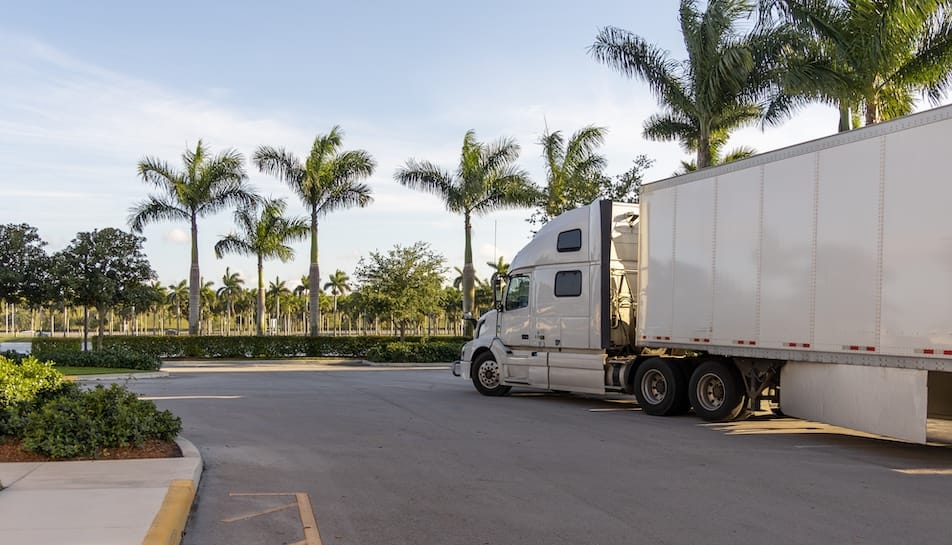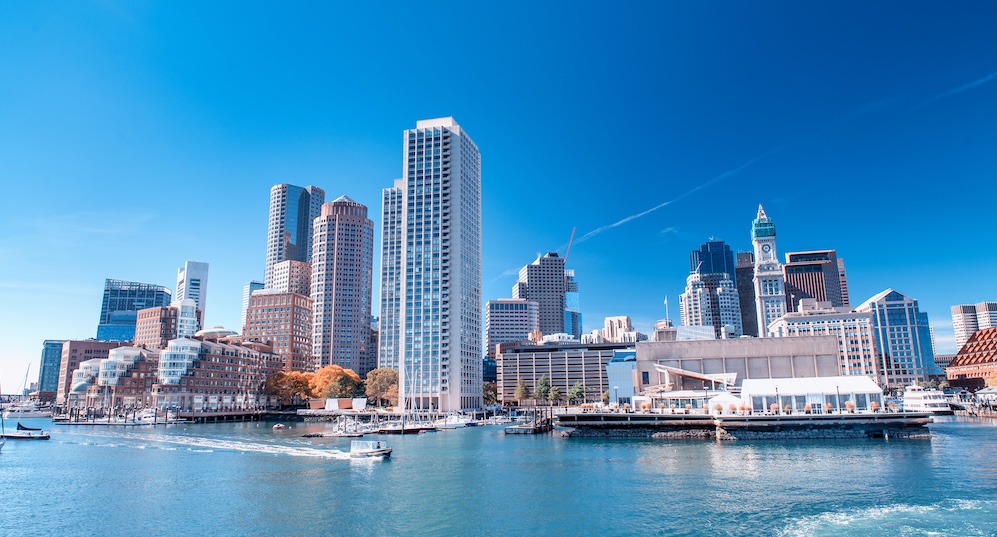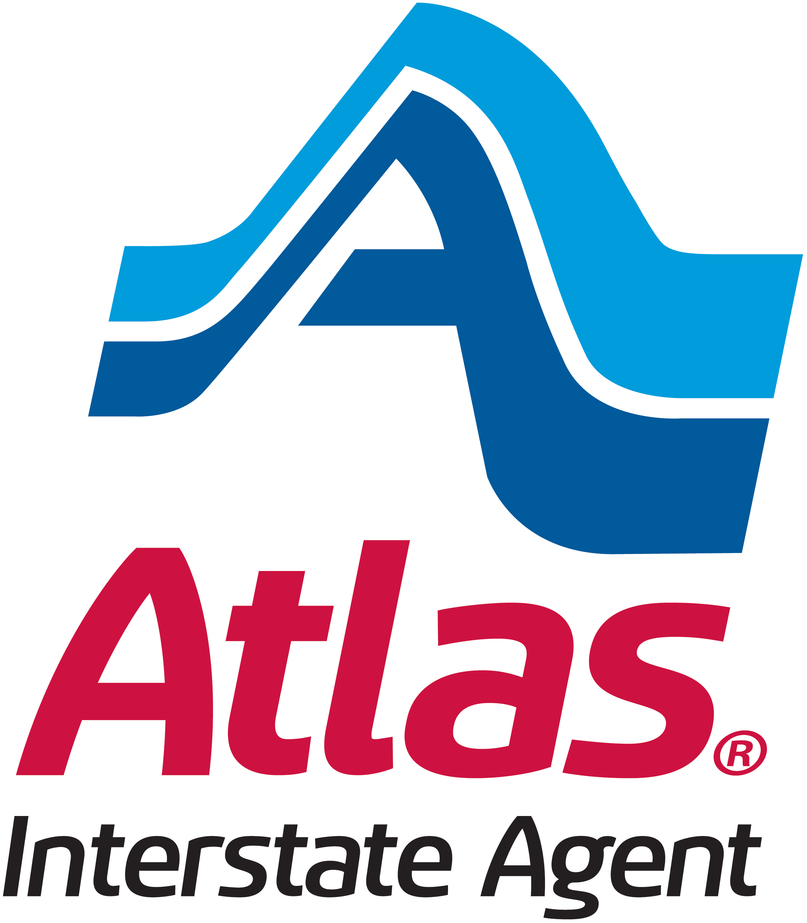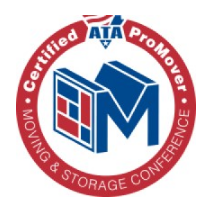The Ultimate Moving Guide to Florida: What You Need to Know

Florida’s pristine beaches, year-round sunshine, and zero state income tax draw thousands of new residents annually. Yet successful relocation to the Sunshine State requires careful planning and local knowledge. Since 1904, Nelson Westerberg has guided countless families and professionals through their Florida moving journey.
Relocating to Florida opens doors to exciting opportunities while presenting unique considerations. From selecting hurricane-resistant housing in Miami to understanding Central Florida’s seasonal patterns, each decision shapes your moving experience.
Our expertise spans crucial aspects like establishing residency, adapting to local insurance requirements, and timing your move around Florida’s peak seasons.
Discover the path to success in Florida. We break down essential elements of local, interstate, and cross-country moves while sharing insider knowledge about Florida’s diverse regions.
Our established approaches can help you explore everything from housing options and insurance needs to finding the right neighborhood and becoming an active community member. Through careful planning and informed decisions, your transition to Florida living becomes an exciting adventure rather than an overwhelming challenge.
Pre-Move Planning And Preparation
Successful relocation to Florida starts with thorough planning and preparation. At Nelson Westerberg, we’ve helped countless families and individuals make this transition since 1904, creating seamless moving experiences through our well-structured approach.
Creating Your Florida Moving Timeline
Start planning your Florida move 8-12 weeks before your intended moving date to ensure a smooth transition. Here’s a practical timeline to follow:
- 8-12 weeks before: Research and book your moving company
- 6-8 weeks before: Begin sorting belongings and decluttering
- 4-6 weeks before: Gather important documentation and records
- 2-4 weeks before: Schedule utility transfers and address changes
- 1-2 weeks before: Arrange medical record transfers and school enrollments
Setting A Realistic Moving Budget
Your moving budget should cover both major expenses and any additional potential costs that may arise. Here are the key elements to consider:
- Professional moving services and insurance
- Packing materials and supplies
- Transportation and fuel costs
- Temporary storage solutions if needed
- Florida-specific expenses (hurricane insurance, housing deposits)
- Emergency fund buffer (10-15% of total budget)
Best Times To Move To Florida
Seasonal Considerations
Florida’s unique climate significantly impacts moving conditions throughout the year. October to April offers optimal moving weather, with pleasant temperatures ranging from the mid-60s to mid-70s and lower humidity levels. Weather patterns remain more stable during these months, reducing the risk of weather-related delays or complications.
Peak vs Off-Peak Moving Rates
Moving costs in Florida follow predictable seasonal patterns:
Peak Season (May-September):
- Higher demand and premium rates
- Limited scheduling availability
- Busier moving companies
Off-Peak Season (October-April):
- More competitive pricing
- Flexible scheduling options
- Better availability of moving services
Money-saving tip: Schedule your move mid-month and mid-week for the most competitive rates, regardless of season. This strategy can lead to significant savings while ensuring better service availability from your chosen moving company.
Choosing Your Florida Destination
Selecting the right location in Florida is crucial for your long-term happiness and success. Our extensive experience helping families relocate throughout the Sunshine State has shown us that each area offers unique advantages worth careful consideration.
Popular Cities For Different Lifestyles
Best For Families
Family-friendly communities in Florida excel at providing:
- Top-rated school districts in Naples, Winter Park, and Coral Gables
- Safe, walkable neighborhoods with community-focused programs
- Abundant recreational facilities, including parks and libraries
- Year-round cultural events and educational opportunities
- Strong youth sports programs and extracurricular activities
Best For Young Professionals
Miami, Tampa, and Orlando stand out with:
- Robust job markets in technology, healthcare, and tourism Engaging social environments and diverse dining options
- Modern housing developments in areas like Brickell (Miami)
- Excellent public transportation and walkable districts
- Thriving arts and entertainment districts in Downtown St. Petersburg
Best For Retirees
Premier retirement destinations like The Villages, Sarasota, and Naples feature:
- World-class healthcare facilities and medical centers
- Championship golf courses and tennis facilities
- Active adult communities with organized social events
- Low crime rates and peaceful environments
- Convenient access to shopping and essential services
Neighborhood Selection Criteria
Careful neighborhood assessment demands a thoughtful approach. Visit potential areas during different times of day to experience the true community atmosphere. Essential factors to consider include:
- Distance to workplace or favorite activities
- Quality and proximity of local amenities
- Available transportation options
- Crime statistics and safety measures
- Flood zone designation
- Hurricane preparedness requirements
Local Housing Market Insights
Florida’s real estate conditions differ significantly across different areas. Coastal properties typically command premium prices but offer strong investment potential and stunning views.
Inland communities present more affordable options while maintaining convenient access to major attractions and amenities. Partner with experienced local real estate agents who understand specific market conditions and can match neighborhoods to your lifestyle needs.
Cost Of Living Comparisons
While Florida’s no state income tax policy attracts many residents, living costs vary significantly by location:
Coastal Areas:
- Higher property values and insurance premiums
- Premium prices for waterfront dining and entertainment
- Elevated utility costs in some regions
Inland Communities:
- More affordable housing options
- Lower insurance rates
- Reduced overall living expenses
Consider these essential cost factors:
- Property tax variations by county
- Utility rate differences
- Transportation expenses
- Insurance requirements
- Local grocery and healthcare costs
- Entertainment and dining prices
Financial Planning For Your Florida Move
Proper financial planning is essential for a successful relocation to Florida. Nelson Westerberg has guided families and individuals through their moving finances since 1904, offering expertise you can trust for your upcoming transition.
Moving Expenses Breakdown
Moving costs fluctuate based on several key factors:
- Distance of your move
- Seasonal timing
- Level of service required
- Volume of belongings
Comprehensive moving services include:
- Packing materials and supplies
- Professional labor teams
- Transportation and logistics
- Optional storage solutions
- Utility connection services
Plan your move between October and April to maximize savings, as these off-peak months typically offer more competitive rates and greater scheduling flexibility.
Housing Costs And Options
Florida’s diverse housing market accommodates various budgets and lifestyle preferences. Coastal properties and urban centers command premium prices, while inland communities present more budget-friendly alternatives.
Essential housing-related expenses to consider:
- Property maintenance and regular repairs
- HOA fees (common in Florida communities)
- Monthly utility costs
- Local property tax obligations
- Insurance premiums
Florida’s Tax Benefits
Florida residents enjoy significant tax advantages that enhance long-term financial stability:
- Zero state income tax
- No inheritance tax burden
- Estate tax exemption
- Homestead exemption up to $50,000 for primary residences
These tax benefits often help offset initial moving expenses and contribute to a more favorable financial outlook.
Insurance Considerations
Home Insurance
Florida home insurance typically exceeds national averages due to unique environmental factors. Standard coverage includes:
- Complete dwelling protection
- Personal property safeguards
- Liability coverage
- Temporary living expense protection
Flood Insurance
Flood protection requires separate coverage beyond standard homeowners insurance. Many Florida properties, especially in coastal regions and designated flood zones, mandate this additional protection. Research local flood zone classifications early, as they significantly impact insurance requirements and costs.
Hurricane Coverage
Hurricane protection forms a crucial component of Florida home ownership. While integrated into standard homeowners policies through windstorm coverage, hurricane protection often carries:
- Separate deductibles (2-5% of insured value)
- Specific wind mitigation requirements
- Regional coverage variations
Work closely with local insurance experts to develop coverage that protects your investment. Consider multi-policy bundles to optimize costs while maintaining robust protection for your Florida residence.
Local Move Specifics
Moving within Florida presents its own unique set of challenges and opportunities. Our century of experience has helped us perfect the art of local moves, ensuring your transition to a new Florida home is smooth and stress-free.
Within-Florida Moving Tips
The key to a successful Florida move lies in smart planning and local knowledge. Schedule your relocation during early morning hours to avoid the intense afternoon heat and unexpected thunderstorms that characterize Florida weather.
Essential planning steps include:
- Coordinating with building management or HOA regarding specific moving regulations
- Checking community-specific rules about move-in times
- Verifying elevator access and scheduling (for multi-story buildings)
- Arranging climate-controlled transport for heat-sensitive items
Pack temperature-sensitive belongings separately, giving special attention to electronics, artwork, and delicate items that could be affected by Florida’s humidity and heat.
Local Moving Services
Our Florida home moving services are tailored to your individual requirements. Nelson Westerberg’s specialized services include:
- Professional packing and unpacking
- Furniture disassembly and reassembly
- Climate-controlled transportation
- Short-term storage solutions
We use our extensive knowledge of Florida’s neighborhoods, building requirements, and seasonal patterns to provide reliable moving experiences.
DIY vs Professional Movers
A DIY move might appear cost-effective at first glance, but careful consideration of all factors is essential. Professional moving companies offer valuable expertise in addressing Florida’s unique conditions, including managing busy coastal routes and protecting belongings from humidity and heat.
True costs of DIY moving include:
- Truck rental fees
- Packing supplies and materials
- Equipment rental
- Fuel expenses
- Time off work
- Physical strain and stress
Professional movers represent an upfront investment that often proves more economical when considering time savings, reduced damage risk, and complete insurance coverage.
Same-Day Moving Options
Same-day moving services provide efficient solutions for local relocations, perfect for apartment moves, small homes, or urgent moving needs.
Keys to successful same-day moves:
- Book your time slot as early as possible
- Complete packing before movers arrive
- Prepare all necessary paperwork
- Have payment ready
- Clear pathways throughout your space
- Mark items requiring special handling
When selecting a same-day service provider, confirm they have both the resources and experience to handle time-sensitive moves while maintaining high-quality service standards.
Interstate Move Requirements
Moving to Florida from another state requires careful attention to documentation and regulations. Let us help you understand the essential requirements for a seamless transition to your new home in the Sunshine State.
Cross-State Documentation
Establishing residency in Florida requires specific documentation to ensure a smooth transition. Here’s a list of the key paperwork you’ll need:
- Valid government-issued photo ID
- Proof of Florida address (lease agreement or property deed)
- Social Security card
- Birth certificate or passport
- Vehicle title and registration (if applicable)
- Previous state’s driver’s license
Keep these documents in a secure, easily accessible location during your move to streamline various registration processes in Florida.
Interstate Moving Regulations
Interstate moves operate under federal regulations designed to protect consumers and ensure safe transportation of belongings. Interstate movers like Nelson Westerberg adhere to Federal Motor Carrier Safety Administration (FMCSA) guidelines and provide thorough documentation, including:
- Detailed inventory lists
- Bill of lading
- Insurance coverage information
- Delivery window estimates
- Written estimates and contracts
Vehicle Transportation Options
When relocating your vehicle to Florida, you have several transportation options to match your needs and budget:
Professional Auto Transport Services:
- Enclosed carriers (maximum protection)
- Open-air carriers (standard protection)
- Door-to-door delivery service
- Terminal-to-terminal options (cost-effective)
Self-Drive Considerations:
- Plan your route carefully
- Prepare for weather changes
- Register vehicle within 10 days of establishing residency
- Obtain Florida driver’s license within 30 days
Pet Relocation Guidelines
Relocating pets to Florida requires proper documentation and careful planning. Essential pet documentation includes:
- Current health certificates from a licensed veterinarian
- Up-to-date vaccination records
- Valid pet licenses
- Identification tags with current contact information
Make your pet’s journey comfortable by:
- Maintaining regular feeding schedules
- Keeping familiar items accessible
- Planning regular breaks during travel
- Identifying pet-friendly accommodations along your route
- Researching local veterinarians before arrival
Upon settling in Florida, promptly register with a local veterinarian to ensure continuous care for your pets.
Long-Distance Move Planning
Planning a long-distance move to Florida combines careful coordination with strategic preparation. Long-distance movers like Nelson Westerberg bring over a century of experience in managing cross-country moves, ensuring your relocation is smooth and worry-free.
Cross-Country Moving Strategies
A successful cross-country move to Florida starts with thorough preparation. Create a detailed inventory of your belongings to determine truck size requirements and establish proper documentation for insurance coverage.
Consider these essential preparation steps:
- Downsize before moving to reduce costs and simplify relocation
- Utilize professional packing services for proper protection of items
- Label boxes clearly with contents and destination rooms
- Pack fragile items with appropriate materials and techniques
Create a “first-day” box containing immediate necessities:
- Medications and basic first aid supplies
- Essential tools and cleaning supplies
- Important documents and records
- Basic kitchen items and personal care products
Storage Solutions
Long-distance relocations often require flexible storage options when arrival dates don’t align with property availability. Short-term storage provides a secure solution while finalizing housing arrangements or managing unexpected delays.
Florida’s humid climate makes climate-controlled storage essential for:
- Electronic equipment
- Wooden furniture
- Important documents
- Artwork and photographs
- Musical instruments
- Leather goods
Travel Arrangements
Successful travel coordination requires attention to multiple factors:
- Seasonal weather patterns along travel routes
- Florida’s peak tourist seasons and traffic patterns
- Strategic rest stop planning
- Accommodation bookings for extended travel
- Pet-friendly lodging options
- Vehicle maintenance schedules
- Alternative transportation arrangements
Timeline Management
A structured timeline ensures a successful Florida relocation. Begin preparations 8-12 weeks before your intended move date.
12-8 Weeks Before:
- Research and book moving services
- Begin sorting and decluttering
- Request quotes from multiple movers
- Start collecting packing materials
8-6 Weeks Before:
- Begin packing non-essential items
- Arrange utility transfers
- Schedule disconnection services
- Contact insurance providers
6-4 Weeks Before:
- Complete change-of-address forms
- Organize important documents
- Transfer medical records
- Begin school registration process
4-2 Weeks Before:
- Complete major packing
- Confirm moving dates and details
- Arrange banking transfers
- Schedule property cleanings
2 Weeks to Moving Day:
- Pack remaining essential items
- Prepare appliances for moving
- Create room-by-room walkthrough lists
- Set aside important travel documents
Build buffer time into your schedule for unexpected challenges. Nelson Westerberg’s moving coordinators create customized plans to meet your specific needs, ensuring a well-organized transition to your new Florida home.
Essential Post-Move Tasks
After arriving in Florida, your new life begins with several important tasks that require prompt attention. A systematic approach to these responsibilities will ensure a smooth transition while keeping you compliant with state regulations.
Florida Residency Requirements
Becoming a Florida resident involves a formal process beyond simply moving into your new home. File a Declaration of Domicile at your local county courthouse and maintain proper documentation to demonstrate your commitment to making Florida your permanent residence. This crucial step allows you to benefit from Florida’s advantageous tax structure, including the notable absence of state income tax.
Essential documents for proving residency:
- Florida driver’s license or state ID card
- Property deed or residential lease agreement
- Current utility bills with your name and address
- Florida voter registration card
- Bank statements showing local transactions
- Federal tax returns with Florida address
Driver’s License And Vehicle Registration
New residents must obtain a Florida driver’s license within 30 days of establishing residency. Prepare for your visit to the Driver’s License office by gathering these required documents:
- Valid out-of-state license
- Primary identification (passport or birth certificate)
- Social Security card
- Two documents verifying your Florida address
- Proof of insurance coverage
Your vehicle registration needs attention within the same 30-day window. First, secure Florida-compliant auto insurance coverage, then complete your vehicle registration at the local tax collector’s office.
Voter Registration
Exercise your civic duty by registering to vote through multiple convenient channels: your local Supervisor of Elections office, driver’s license office, or the Florida Department of State website. You’ll need:
- Florida driver’s license or state ID number
- Last four digits of your Social Security number
- Current Florida residential address
Setting Up Utilities
Florida’s warm climate makes establishing utilities a top priority before move-in day. Contact local providers to arrange these essential services:
- Electricity service
- Water and sewer connections
- Natural gas service (where available)
- High-speed internet and cable
- Trash and recycling collection
- Pest control services
Healthcare Provider Selection
Build your Florida healthcare network by carefully selecting providers who meet your needs and accept your insurance. Focus on establishing relationships with:
- A reliable primary care physician
- Family dentist
- Relevant medical specialists
- Convenient urgent care facilities
- Well-rated local hospitals
Take proactive steps to ensure continuous medical care:
- Request medical records from previous providers
- Update insurance information with your Florida address
- Verify coverage networks in your new area
- Schedule initial consultations with new providers
- Locate nearby pharmacies for prescription transfers
Adapting To Florida Life
Transitioning to life in the Sunshine State brings exciting opportunities along with unique adjustments. Understanding and preparing for Florida’s distinctive characteristics will help you embrace your new lifestyle with confidence and enthusiasm.
Climate Adjustment Tips
Florida’s subtropical climate requires thoughtful adaptation strategies. Prepare for year-round warmth and high humidity with these essential steps:
- Install quality window treatments with UV protection to manage intense sunlight and reduce energy costs
- Build a wardrobe with lightweight, breathable fabrics suitable for humid conditions
- Familiarize yourself with your home’s air conditioning system and schedule regular maintenance
- Keep water bottles handy and apply broad-spectrum sunscreen daily
- Schedule outdoor activities during cooler morning or evening hours to avoid peak heat
Hurricane Preparedness
Hurricane season in Florida runs from June through November, making preparedness essential for every resident. Create a robust safety plan that includes:
- Stock an emergency kit with non-perishable food, water, and supplies for at least 7 days
- Identify your evacuation zone and map multiple evacuation routes Store crucial documents in waterproof containers or digital formats
- Protect your home with hurricane shutters or maintain a supply of pre-cut plywood
- Review and update insurance policies to ensure adequate coverage for wind and flood damage
Local Culture And Customs
Florida’s varied population contributes to a rich cultural environment that influences everyday experiences. Embrace these distinctive characteristics:
- A welcoming atmosphere that encourages casual, friendly interactions
- Diverse cultural influences, especially prominent in coastal cities and urban centers
- Water-centric lifestyle featuring beaches, boating, and outdoor recreation
- Tourism-friendly mindset that welcomes visitors while maintaining local charm Distinctive combination of Southern charm and coastal tranquility
Community Engagement Strategies
Building meaningful connections helps create a strong sense of belonging in your new Florida community. Consider these effective approaches:
Explore local gatherings that showcase Florida’s unique character through farmers’ markets, food festivals, and outdoor concerts. These events naturally promote connections while introducing you to regional specialties and traditions.
Pursue your interests through local organizations and clubs. From marine conservation groups to professional networks, these communities offer opportunities to meet like-minded neighbors while contributing to causes you care about.
Get involved in neighborhood initiatives such as community gardens, local improvement projects, or homeowner associations. Active participation helps you understand community priorities while building lasting relationships with fellow residents.
Embrace Florida’s distinctive social calendar, which often revolves around outdoor activities and seasonal celebrations. Regular participation in these events helps you develop authentic connections while experiencing the best of Florida living.
Frequently Asked Questions
- How much money should I save before moving to Florida?
A solid financial foundation requires saving three to six months of living expenses before relocating to Florida. Your savings should cover essential startup costs:
- First month’s rent and security deposit
- Utility connection fees
- Professional moving services
- Emergency fund
- Area-specific insurance
Living costs vary significantly between Florida cities. Miami’s expenses typically run higher than Jacksonville’s, while coastal areas often require additional hurricane insurance and higher cooling costs.
- What documents do I need to establish Florida residency?
Florida residency requires two official documents showing your Florida address. Acceptable proof includes:
- Florida driver’s license or state ID
- Voter registration card
- Vehicle registration
- Current utility bills
- Signed lease agreement
- Mortgage statement
For tax purposes, consider filing a Declaration of Domicile with your county clerk’s office to formally establish your Florida residency status.
- When is the best time of year to move to Florida?
Fall months (October-November) and early spring (March-April) offer ideal moving conditions in Florida. Benefits of these seasons include:
- Mild temperatures
- Lower humidity levels
- Reduced tourist traffic
- Better availability of moving services
- More favorable moving rates
- Outside of hurricane season
- How long do I have to get a Florida driver’s license after moving?
New Florida residents must obtain their state driver’s license within 30 days of establishing residency. Bring these essential documents to your local Driver License Service Center:
-
- Current out-of-state license
- Primary identification (passport or birth certificate)
- Social Security card or proof of number
- Two documents proving Florida residence
- Payment for applicable fees
- What insurance coverage is required in Florida?
Florida’s essential insurance requirements protect residents against common risks. Required coverage includes:
- Personal Injury Protection (PIP)
- Property Damage Liability (PDL) Reliable homeowners insurance with coverage for hurricane events
- Wind damage coverage
While not legally mandated, flood insurance is strongly recommended, particularly in coastal regions. Renters should secure renter’s insurance to safeguard personal belongings against hurricane damage and other potential risks.
Conclusion
Relocating to Florida offers a wealth of possibilities – from the abundant sunshine to flourishing communities and appealing opportunities. Whether you’re moving locally within the Sunshine State, crossing state lines, or traveling coast-to-coast, your success depends on careful planning and attention to detail.
Key considerations for your Florida move:
- Research your ideal location thoroughly, considering factors like climate, lifestyle, and community
- Establish a realistic budget that accounts for moving costs, housing, and living expenses
- Understand Florida-specific requirements for residency and insurance coverage
For local moves within Florida:
- Schedule your relocation during off-peak seasons (October-April) for better rates
- Take advantage of flexible scheduling options
- Consider short-term storage solutions if needed
For interstate and long-distance moves:
- Gather all necessary documentation early
- Complete vehicle registration requirements
- Plan logistics carefully, including transportation and storage needs
- Partner with an experienced moving company like Nelson Westerberg for seamless coordination
The benefits of Florida living make thorough preparation worthwhile. You’ll enjoy advantages like:
- No state income tax
- Year-round outdoor activities
- Diverse cultural experiences
- Abundant recreational opportunities
Start your journey to Florida living today by creating a personalized moving timeline. With proper planning and professional support, you’ll soon join the millions who proudly call the Sunshine State home.
Related Articles
Moving Guide to Boston: Essential Tips for a Successful Relocation

Boston stands as a beacon of opportunity, where colonial charm meets cutting-edge innovation. This historic city draws thousands of new residents annually with its world-class universities, thriving job market, and rich cultural heritage. Moving to this vibrant city demands careful consideration, from investigating the housing choices with a typical one-bedroom apartment price of $2,330 to […]
Read MoreComplete Moving Guide to Massachusetts: Cost, Jobs & Best Places

From renowned universities to thriving technology centers, Massachusetts enthralls newcomers with its seamless integration of historical allure and contemporary progress. The state’s diverse geography spans from Boston’s bustling urban area to the peaceful Berkshire hills, offering a variety of living options to accommodate different preferences. Massachusetts consistently ranks among America’s top states for education, healthcare, […]
Read More




